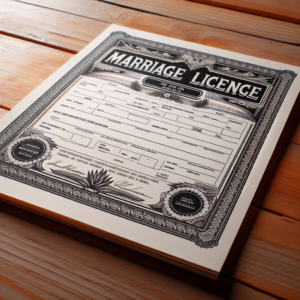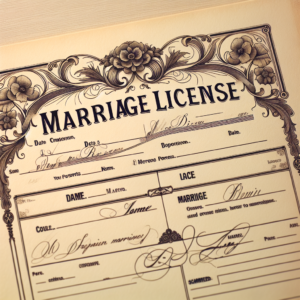Marriage Age Debate: Are We Ready to Challenge Societal Norms?

The debate surrounding the appropriate age for marriage has garnered increasing attention in recent years, as societal norms evolve and cultural expectations shift. While many societies have historically set a standard age for marriage, the question arises: are we ready to challenge these norms? This article explores the historical context of marriage age, the impact of cultural norms, legal frameworks, psychological readiness, and the influence of education and career aspirations, ultimately advocating for a more flexible approach to marriage age.
Understanding the Historical Context of Marriage Age and Societal Expectations
Marriage age has been shaped by a myriad of historical factors, including economic conditions, cultural practices, and societal expectations. In many ancient societies, marriages were often arranged, and the age of marriage was dictated by factors such as fertility and family alliances rather than individual choice. Over time, as societies progressed, the age of marriage began to rise, reflecting changes in gender roles, economic independence, and educational opportunities. In the 20th century, particularly in Western nations, the age of marriage increased significantly as women gained access to higher education and entered the workforce. This historical trajectory illustrates how societal expectations surrounding marriage age have evolved, prompting a reevaluation of what constitutes an appropriate age for marriage in contemporary society.
The Impact of Cultural Norms on Marriage Age Across Different Societies
Cultural norms play a pivotal role in determining the acceptable age for marriage, with significant variations observed across different societies. In some cultures, early marriage is prevalent and often viewed as a rite of passage, while in others, late marriage is encouraged as individuals prioritize education and career development. For instance, in many South Asian countries, it is common for women to marry in their late teens or early twenties, often influenced by familial expectations and cultural traditions. Conversely, in Scandinavian countries, the average marriage age has risen to the late twenties or early thirties, reflecting a societal emphasis on individualism and personal fulfillment. These cultural differences underscore the complexity of the marriage age debate, highlighting the need for a nuanced understanding of how cultural contexts shape individual choices.
Analyzing the Legal Framework Surrounding Marriage Age in Various Countries
The legal framework governing marriage age varies significantly across countries, often reflecting cultural norms and societal values. In some nations, the legal minimum age for marriage is set at 18, while others allow individuals to marry at a younger age with parental consent. For example, in the United States, marriage laws are determined at the state level, resulting in a patchwork of regulations that can permit marriage at 16 or even younger in certain circumstances. Conversely, countries like Japan and South Korea have established a legal marriage age of 18 for women and 20 for men, emphasizing gender equality in marital rights. However, despite these legal standards, issues such as child marriage persist in many regions, raising questions about the effectiveness of legal frameworks in protecting vulnerable populations. This disparity calls for a reevaluation of existing laws to ensure they align with contemporary societal values and protect individual rights.
Psychological and Emotional Readiness: Are Younger Couples Prepared for Marriage?
The question of psychological and emotional readiness is crucial when considering the age of marriage. Research indicates that younger couples may face unique challenges, including a lack of life experience and emotional maturity, which can impact their ability to navigate the complexities of married life. Studies suggest that individuals who marry at a younger age are more likely to experience marital dissatisfaction and higher divorce rates compared to those who marry later. Factors such as communication skills, conflict resolution, and financial stability play significant roles in the success of a marriage. Therefore, it is essential to assess whether younger individuals possess the necessary emotional tools and support systems to embark on such a significant commitment. As society evolves, it becomes increasingly important to prioritize emotional readiness alongside legal age requirements in discussions about marriage.
The Role of Education and Career Aspirations in Shaping Marriage Age Decisions
Education and career aspirations have become increasingly influential in shaping decisions about marriage age. As more individuals pursue higher education and establish their careers, the trend of marrying later in life has emerged. This shift reflects a growing recognition of the importance of personal development and financial stability before entering into marriage. Research indicates that individuals who prioritize education and career often experience greater satisfaction in their marriages, as they bring a sense of independence and self-awareness to the relationship. Furthermore, the desire for personal growth and achievement can lead to more equitable partnerships, challenging traditional gender roles within marriage. As societal values continue to evolve, the interplay between education, career aspirations, and marriage age will likely remain a critical area of discussion.
Challenging the Status Quo: Advocating for Flexible Marriage Age Norms in Society
In light of the complexities surrounding marriage age, there is a growing movement advocating for more flexible norms that accommodate individual circumstances. This perspective emphasizes the importance of personal choice and readiness over rigid age requirements, recognizing that maturity and life experience vary significantly among individuals. Advocates argue that society should move away from a one-size-fits-all approach to marriage age, allowing individuals to make informed decisions based on their unique situations. This shift could involve reexamining legal frameworks, promoting educational initiatives about emotional readiness, and fostering open discussions about the implications of early marriage. By challenging the status quo, society can create an environment that respects individual choices while ensuring that all individuals are equipped to enter into marriage with the necessary tools for success.
The marriage age debate is a multifaceted issue that intersects with historical, cultural, legal, psychological, and educational dimensions. As societal norms continue to evolve, it is essential to engage in thoughtful discussions about the implications of marriage age and the readiness of individuals to enter into such a significant commitment. By advocating for flexible marriage age norms and prioritizing emotional and psychological readiness, society can foster healthier relationships and empower individuals to make informed choices about their futures. Ultimately, challenging traditional norms surrounding marriage age may lead to a more inclusive and understanding society, where personal fulfillment and individual circumstances take precedence over outdated expectations.


















